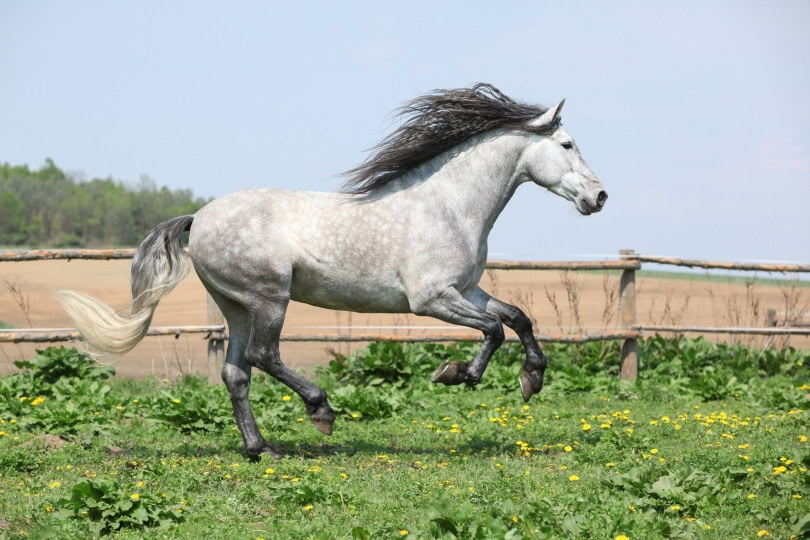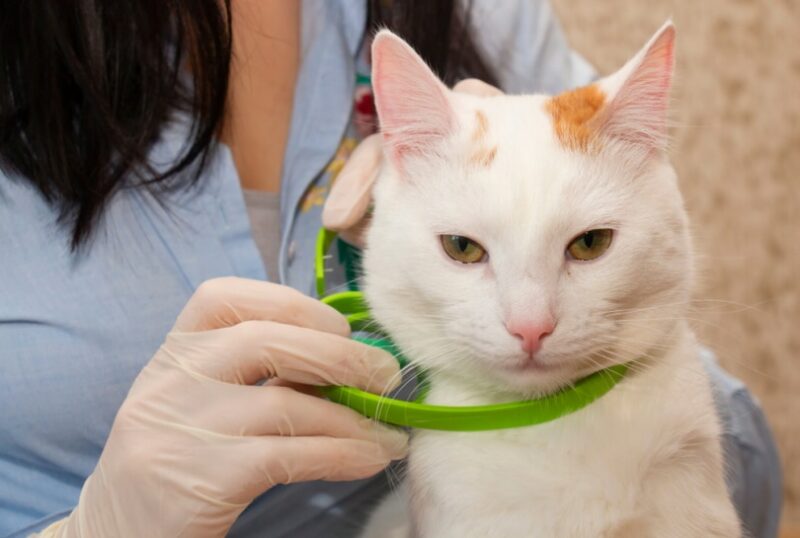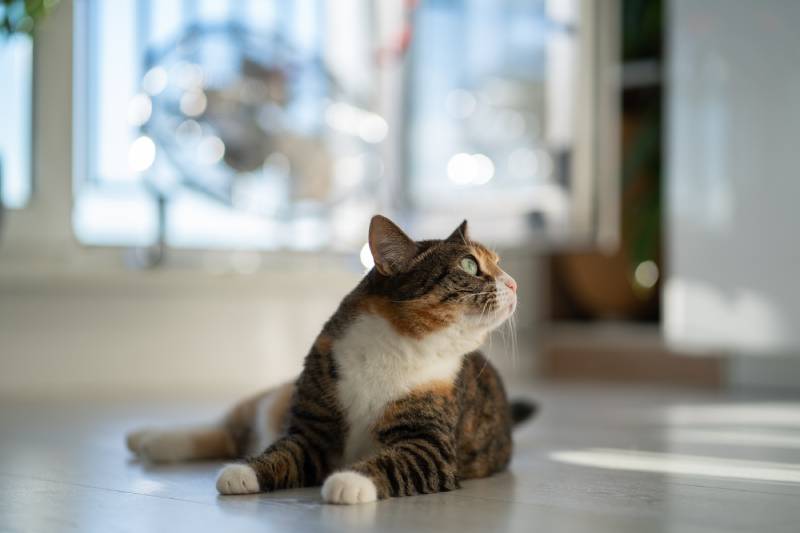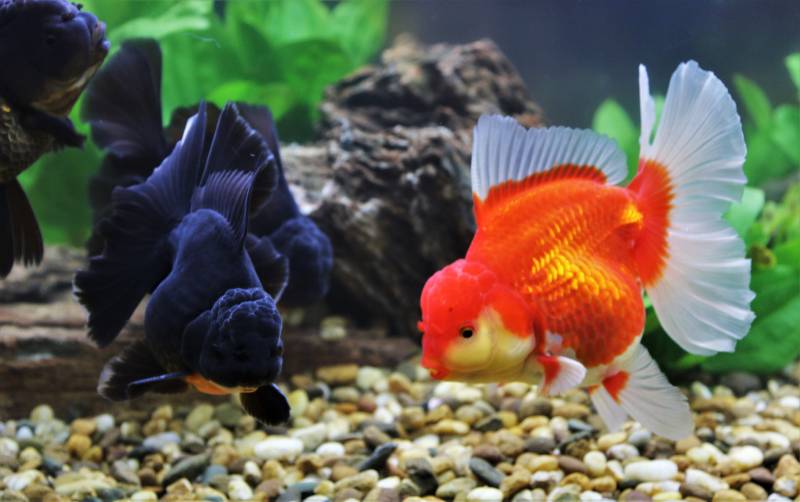VET APPROVED

The information is current and up-to-date in accordance with the latest veterinarian research.
Learn more »Click to Skip Ahead
Horses are graceful, intelligent, big, and beautiful animals that offer companionship, farm help, and an enjoyable ride. They do need to be groomed regularly, which begs the question: Do horses sweat? The short answer is yes, they do sweat. In fact, did you know that only primates, like us, and horses truly sweat? It’s true! Here is what you need to know about a sweating horse and how to handle it.

How and Why Horses Sweat
Horses cool themselves by sweating, so they tend to sweat mostly when it is warm outside or when they are engaged in intense physical activity. When it is especially warm, a horse can sweat up to 4 or more gallons of water in an hour! Sweating is normal for horses and is nothing to be concerned about unless signs of heatstroke develop.
Although horses have apocrine sweat glands in most haired and non-haired areas of their skin, horses do not sweat all over their bodies when they are trying to cool down. The sweat tends to come from their neck and chest, as well as from their legs when they are moderately hot. If they get overly hot, they could start to sweat from their rump, and the chances are that the horse is in danger of getting heatstroke. Another sign that a horse is getting too hot is profuse sweating while standing still. These horses will need to be hosed down. A little sweating is normal, but excessive sweating while resting should be addressed with a veterinarian’s visit.
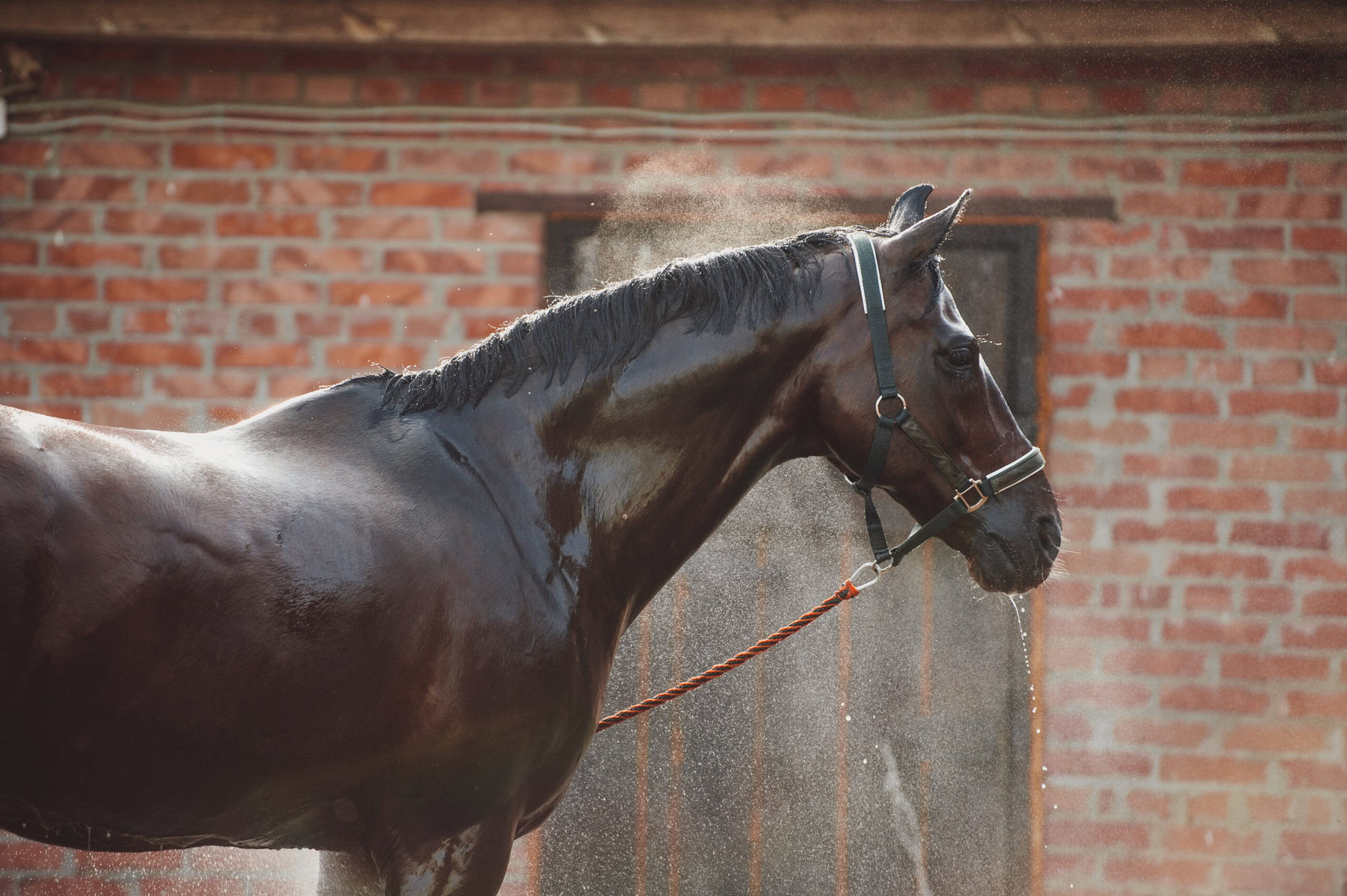
How Sweating Can Be a Sign of Health Problems
Horses should sweat when they exercise or spend extended periods of time under the sun. The sweat production rate depends on the interaction of several factors, including exercise intensity, ambient conditions, hydration status, and the training or heat acclimation status of each individual horse. The sweat produced in response to exercise can be increased by hot temperature or high humidity which reduces evaporative efficiency, contributing to the rise in the horse’s core body temperature.
Horses can lose when they sweat. A horse that sweats extraordinarily little or that does not sweat at all could be suffering from a health condition called anhidrosis, which can result in side effects such as increased respiratory rates, flaky skin, fatigue, hair loss, and even a lack of interest in eating. Anhidrotic horses need lots of help staying cool, and special housing conditions, environmental considerations, and work or exercise limitations.
Excessive sweating can also be dangerous, as sweating could result in dehydration due to loss of water and electrolytes. A dehydrated horse gets cramps when they move, especially when a rider is on them. Dehydration can also lead to heat exhaustion, seizures, and even kidney failure. Horses should have access to unlimited clean water throughout the day to help combat the risk of dehydration.

How to Relieve Sweating and Regulate Temperature
If a horse is sweating too much, there are a few things that can be done to relieve the sweating and make body temperature regulation easier on them overall. First and foremost, a spray down with a water hose should be offered. Watering a horse down will quickly reduce their body temperature and help them cool off without sweating all their water and electrolytes out.
Putting sprinklers on where horses are roaming in the sun will help keep them cool too. It is important to make sure that horses have access to shade via trees, barns, and other means so that they do not have to stand under the sun all day long, especially when they start sweating. To minimize the risk of dehydration for a sweating horse, place a salt rock next to their water container. This will help restore a large number of electrolytes that are lost while sweating. You can also add electrolyte supplements to a bucket of water and put it next to their clean water source.
Wetting blankets with a hose and laying them over a horse that is sweating in their stall during the downtime will help keep them cool until the sun goes down and the weather cools off. On especially hot days, it is a good idea to refrain from mounting or riding a sweating horse because it may quickly overheat them. Instead, choose an early morning or cool evening time to ride.
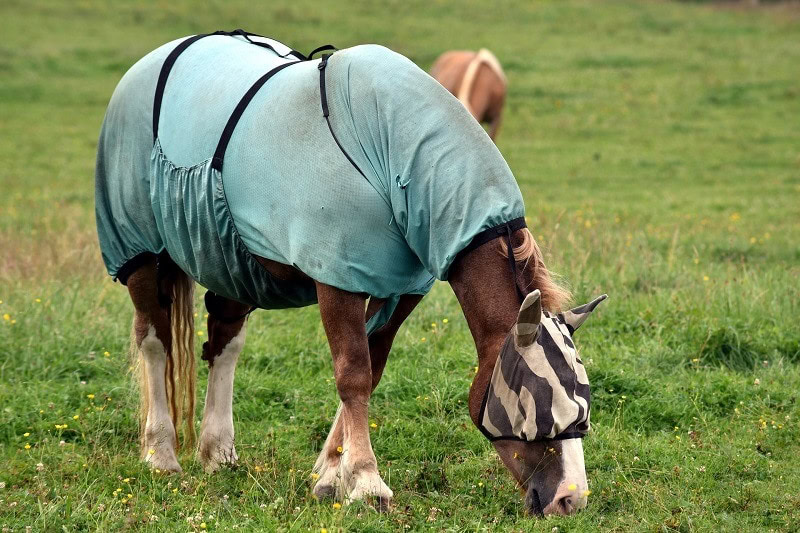

Final Thoughts
Horses do sweat and should sweat when their body temperature rises. They do this naturally, to cool down. However, it is important to be familiar with what is normal sweating and what horses are at risk of overheating or dehydration to prevent this. If excessive sweating happens or if no sweating happens at all, it is important to take the necessary steps that will help relieve or manage their condition. The veterinarian can make a complete evaluation of your horse and the environment that they live in to come up with a management plan. Share any tips or tricks that you have for keeping sweating horses cool in our comments section.
Featured Image Credit: Zuzule, Shutterstock
